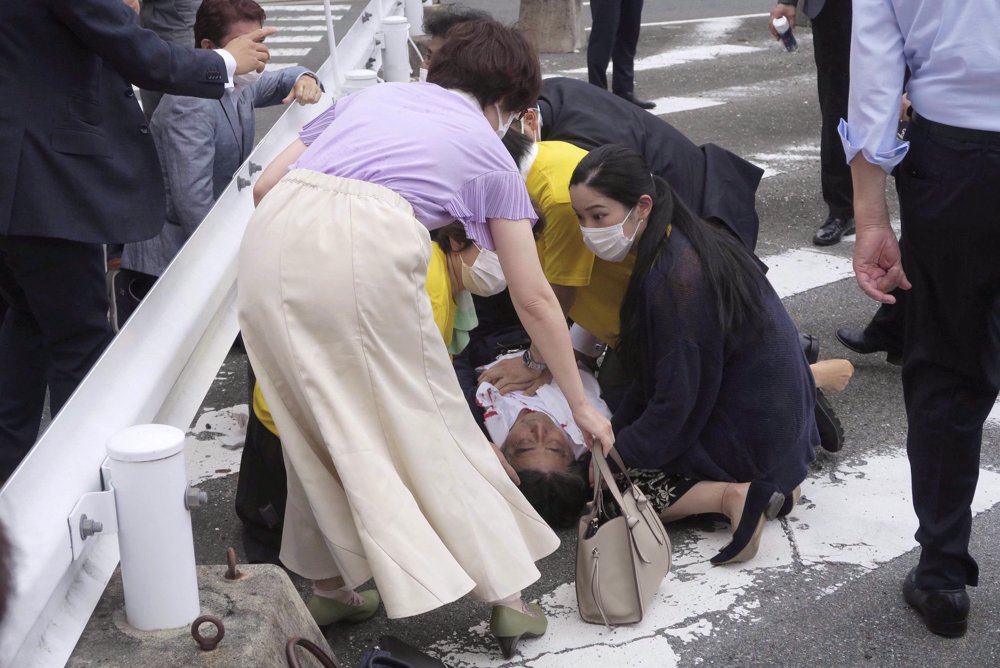Japanese people bid sombre farewell to former PM Shinzo Abe at funeral
Japanese people bid farewell to former prime minister Shinzo Abe on Tuesday during a private funeral that came days after his assassination.
Thousands gathered outside Tokyo’s Zojoji temple where Abe’s family and close friends conducted his last rites as per Buddhist traditions.
From the wee hours of Tuesday morning, long queues of Japanese dressed in black had come to pay their tributes to the towering figure who dominated Japanese politics for decades as the country’s longest-serving prime minister.
The vehicle carrying Abe’s body moved from the temple and drove past the prime minister’s residence and the parliament building, while people with flowers and flags draped in black ribbons bade the final farewell to the slain former premier.
Abe was shot dead while addressing an election campaign meeting in western Japan’s Nara city on Friday. The public shooting drew widespread condemnation from leaders around the world, including Iran's President Ebrahim Raeisi.
The gunman has been identified as Tatsuya Yamagami, who is now in police custody. He believed Abe had promoted a religious group to which his mother made a “huge donation”, Kyodo news agency reported, citing investigators.
The Unification Church, known for its mass weddings and devoted following, said on Monday the suspect’s mother was one of its members.
Around 2,000 condolence messages have been received from nations around the world, Kyodo news agency said.
The grandson of a World War II-era Cabinet minister, Abe came from a wealthy and well-connected political family.
He became Japan's youngest prime minister in 2006 at age 52. He left after a year in office due to health reasons but returned to power in 2012.
He was a conservative and architect of the “Abenomics” policies aimed at boosting Japan’s economy. For years, he supported amending the pacifist clauses in the Japanese constitution to upgrade and expand the country’s military.
Abe had less success with the economic policy that ultimately failed to revive Japan's growth, greatly slowing in the 1990s.
However, he boosted Japan's military spending, expanded his country’s alliance with the US, and implemented major institutional reforms in the country’s security establishment.
Rubio warns US envoys against undermining Trump’s pressure campaign targeting Iran: Report
Iran, Qatar stress continuation of diplomacy towards preserving regional peace, stability
Majority of Americans support Palestinian state as Israel backing declines sharply: Poll
New Israeli strikes kill more Palestinians across Gaza in 'serious violation' of ceasefire
Maliki urges respect for Iraq's sovereignty in meeting with Trump's special envoy
Iran urges restraint, immediate ceasefire as Afghanistan–Pakistan fighting escalates
VIDEO | Press TV's news headlines
VIDEO | Kabul residents call for calm as tensions escalate with Pakistan










 This makes it easy to access the Press TV website
This makes it easy to access the Press TV website